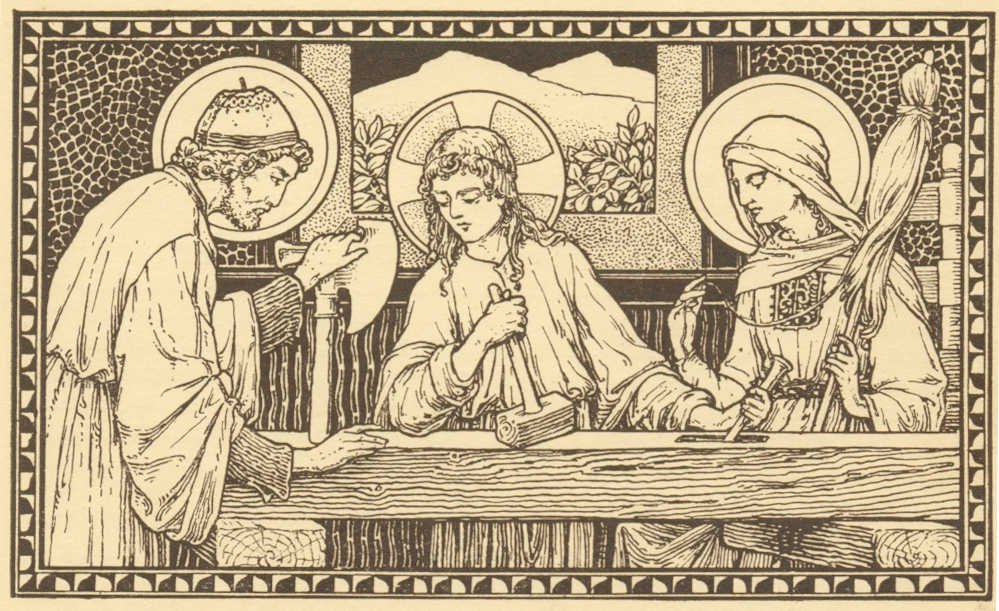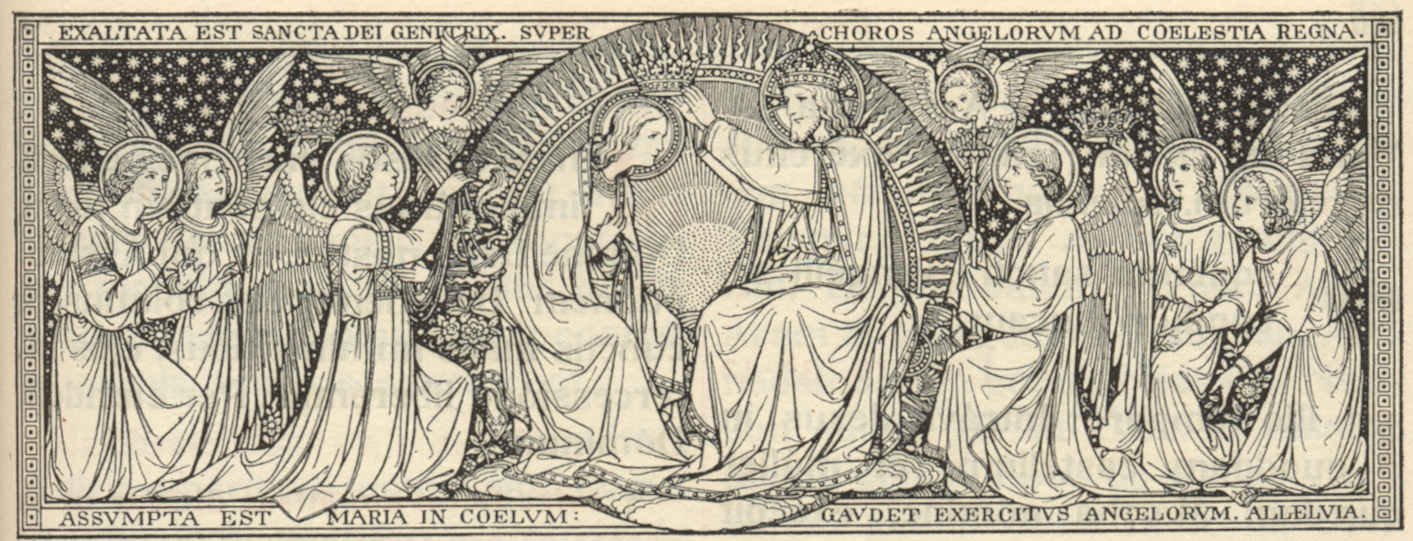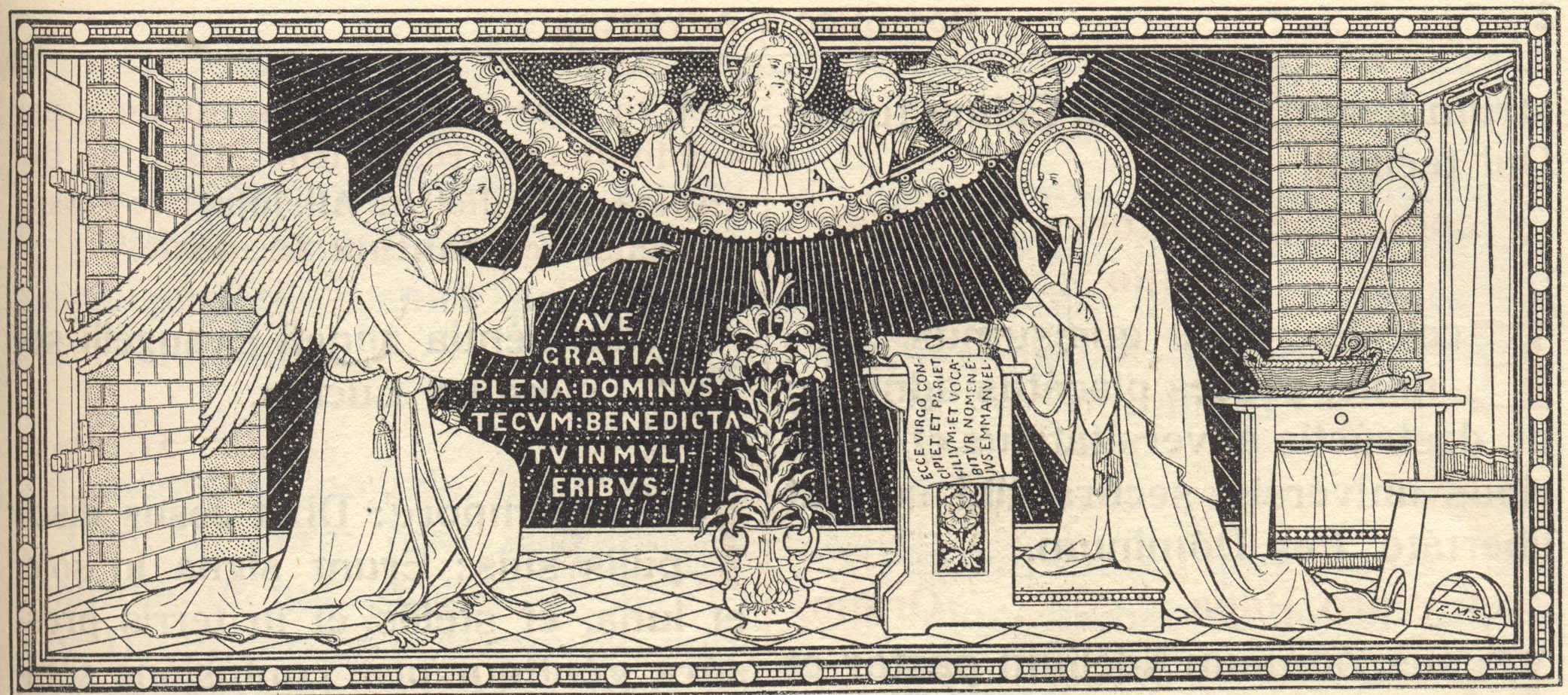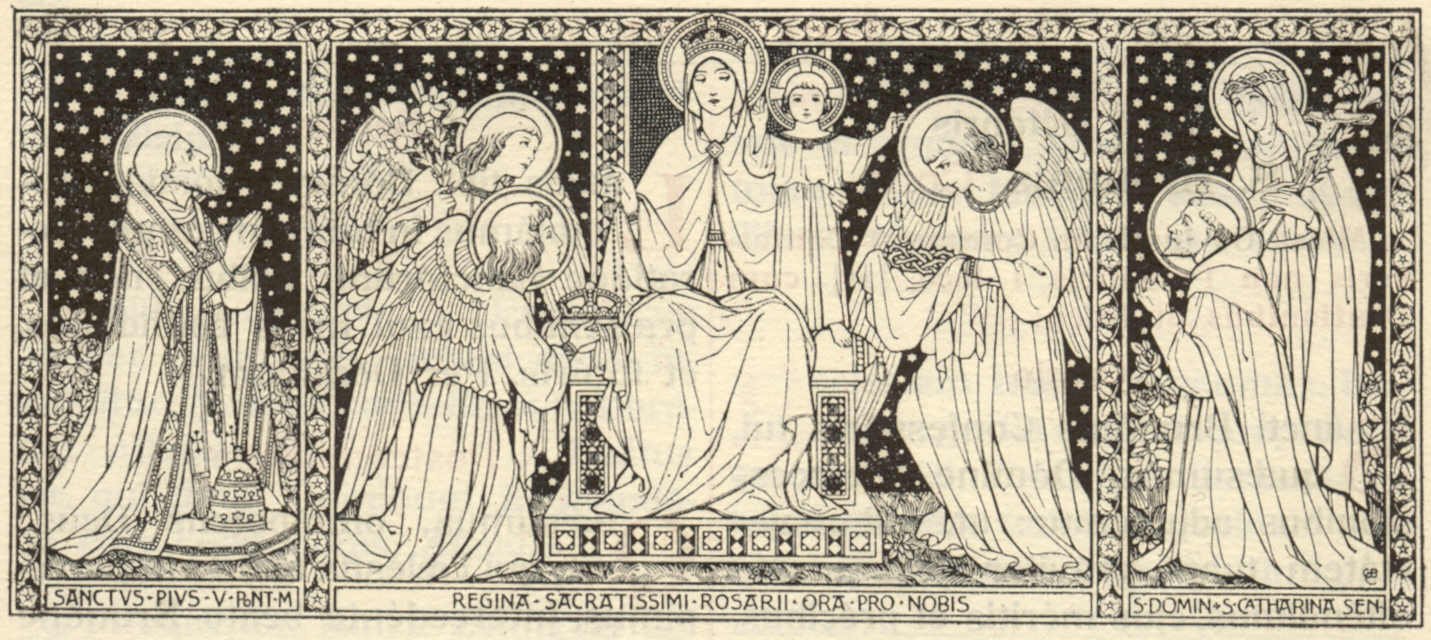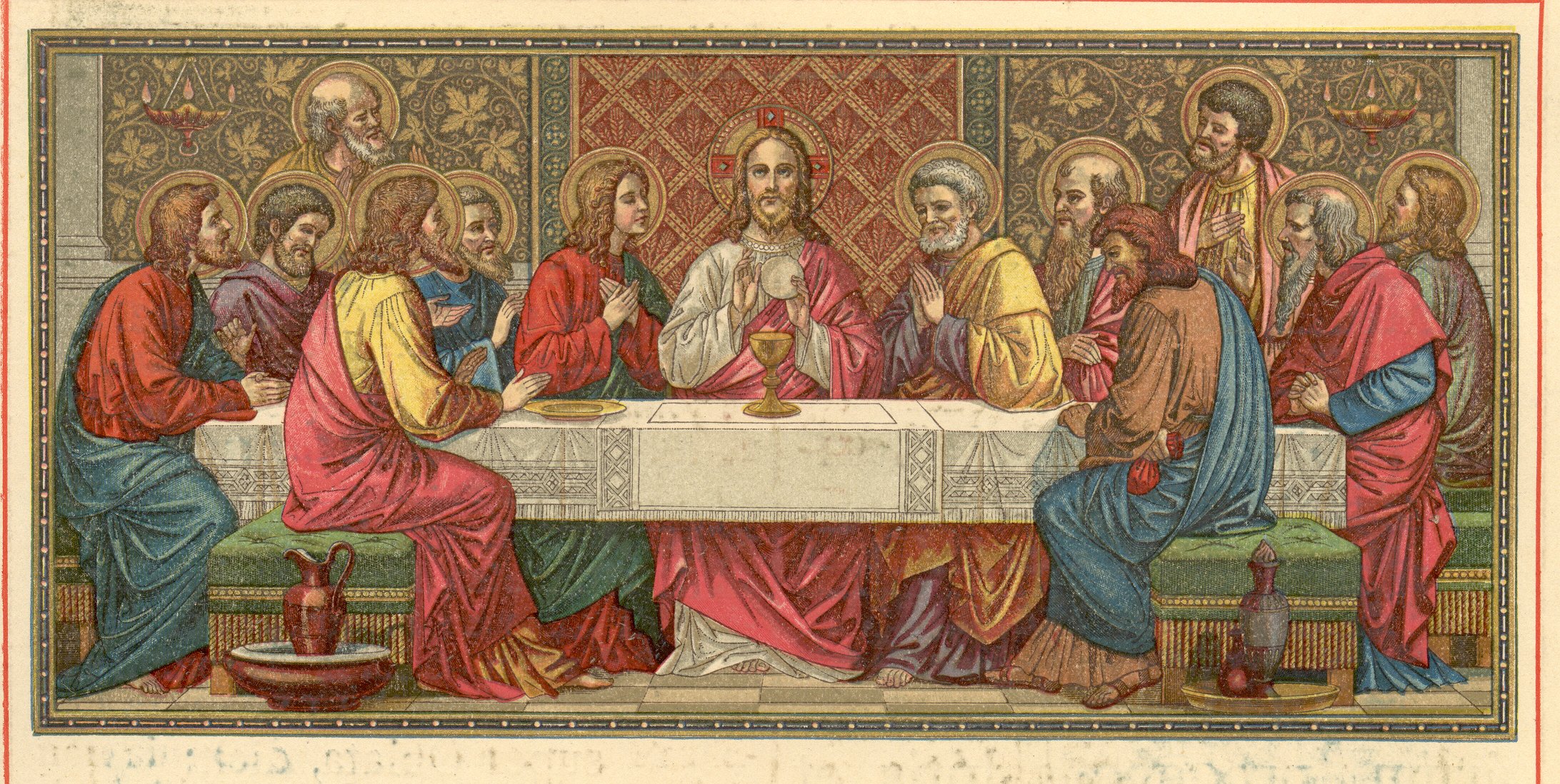
Meditation Manual for Each Day of the Year
Taken from Meditation Manual for Each Day of the Year (From the Italian of a Father of the Society of Jesus) Adapted for Ecclesiastics, Religious, and others London The Manresa Press Roehampton, S.W. 1922
This manual was given to Rev. Fr James Brown, from the diocese of Saint John, New Brunswick, Canada, on the day of his ordination, May 10 1923, along with the book The Glories of Mary. He used this manual throughout his priesthood. He died on May 26, 1965.
+ + + + + + + JMJ + + + + + + +
+++AMDG+++
~Table of Contents by Liturgical Season~
Advent ~ Epiphany ~ Septuagesima ~ Lent ~ Easter ~ Pentecost ~ Time after Pentecost
INTRODUCTION
Let it be then our chief study to meditate upon the life of Jesus Christ. These words at the beginning of the Imitation of Christ are but a conclusion from those other of our Divine Lord: Now this is eternal life that they may know thee, the only true God, and Jesus Christ whom thou hast sent. (John xvii. 3.)
Upon the nature and advantages of meditation there is no need to dwell here. In presenting this little book the sole object in view is to afford some small help towards its daily practice. Undoubtedly the best meditation book of all upon the life of Jesus Christ is that of the Four Gospels. This perhaps is too often forgotten. But as the spoken homily or the written commentary upon the Gospel of the day serves the purpose not only of illustrating the same, but also of putting us in the way of doing as much for ourselves, so a good meditation book will often secure the same practical and desirable end. Though it may not always make an appeal to us individually, it may at least make a suggestion.
This manual is translated and adapted from the Italian of a little work, the substance of which is again taken in part from the Manna of the Soul, by Father Paul Segneri, S.J. The meditations are in large part, though not entirely so, upon the life of our Blessed Lord. One merit of the book id that the meditations for each Sunday is upon the Gospel of the day, thus encouraging the laudable and excellent practice of keeping our thoughts in harmony with the spirit of the Church. A few meditations upon Our Lady and St Joseph are added at the end. Such a book as this evidently does not exclude the practice of making some variety in the subject of our meditation, as on occasion of special feast. Some, for instance, have always the custom of always making their Friday meditation upon the Sacred Passion of our Blessed Lord, or Saturday’s upon our Blessed Lady. A few words may be said about the practical use of this meditation book.
(1) After the title of each meditation a text from the Gospel is given or a passage from the Gospel is set down to be read. Three points then follow, outlining a development of the above. These are frequently very short and are intended to be merely suggestive, to serve rather to put us in the way of making reflections of our own which will appeal more forcibly to us. “For,” as St Ignatius says at the very beginning of his Spiritual Exercises, “it is not to know much, but to understand and savour the matter interiorly that fills and satisfies the soul.” (Annot. ii.) In each point a practical application is in like manner proposed, and also a reminder to excite in our hearts devout affections and to make suitable resolutions.
Meditation consists, as must always be borne in mind, not in a mere acquisition of knowledge, even though it be the excellent knowledge of Jesus Christ. (Phil. iii. 8.) The keynote which St. Ignatius in his Spiritual Exercises sets for all the meditations which we make upon the life and kingdom of our Blessed Lord is precisely this, to strive our utmost to know Jesus Christ more clearly, in order to love Him more dearly and to follow Him more nearly. In meditation then the exercise of the understanding is only a means to an end, and that end is the moving of our will, in the same way as the use of the memory serves to furnish food for the intellect. Through the head to the heart is an axiom which St. Ignatius never wearies of insisting upon, “To reflect,” as he repeats so often, “in order to derive some fruit.” And that this serious application demands an effort on our part he no less clearly lays down. In his meditation, for instance, upon the Last Supper he has these words: “ Here began with great effort to excite grief,” and in that of the Resurrection: “Desire to be affected and to rejoice.” Father Alphonsus Rodriguez, in his work upon Religious and Christian Perfection (Tr. iii., ch.3) sets down in a few words the proper place which acts of the understanding and of the will should occupy in meditation. “The masters of spiritual life commonly teach that the following is what we have to observe in all our prayer, namely, that we are not to spend the whole time in merely meditating and reflecting on the subject we have in hand. It is chiefly necessary that we move our will with affections and desires which are formed first of all in the heart, in order that they may produce their fruit in due time and may be put into execution. It is this we have to insist upon and to attend to in our prayer.
For as one who digs down deep in order to obtain water or to find some treasure, directly he finds what he was in search of, at once stops and no longer continues to dig, so too as soon as by meditation and the consideration of the understanding you have found the gold and the treasure you were looking for, as soon as you have struck the living water for which your soul was seeking and thirsting, you have now no longer to go digging or to go deeper down with the understanding. You must now dwell upon those affections and desires of the will until you have drunk sufficient of that water, slaked your thirst, and are satisfied. For this is the end for which prayer is intended and the fruit you have to gather from it. To this object are to be directed all the meditations, considerations, and reflections of the understanding.”
(2) What, in the next place, is meant by affections which we are to endeavour to excite in our hearts? Father De Ponte in the Introduction (Ch. I) to his Meditations Upon the Mysteries of Holy Faith lays down this principle: ~ “ The substance of mediation consists principally in exercising the acts of our memory, understanding, and will about the mysteries and truths of our holy faith, speaking within ourselves to God and conversing familiarly with Him, begging of Him His gifts, and negotiating all that is necessary for our salvation and perfection.”
Of the acts of memory, understanding and will mention has already been made above. Speaking to God and holding familiar converse with Him may be said to be a further step forward. This converse is exercised by means of those interior sentiments which have been implanted in the human heart as so many created helps to praise and reverence and serve God our Lord and which are all comprised under the general name of affections. Nowhere is there to be found a more complete or exquisite repertory of them than in the Book of Psalms. Herein are set forth as nowhere else the perfections and attributes of God, His wisdom, goodness and power, His majesty, glory and greatness, His immensity, infinity and eternity, His holiness, justice and mercy, His clemency, patience and sweetness, His providence, benignity and fidelity, the beauty, beatitude and peace of God our light, our redeemer, our sanctifier, the creator, preserver, and end of all things. (See for example, Psalms cxliv., cx, lxxxv.)
On the other hand is to be found in the Psalms the outward expression of sentiments in the human heart which respond to these divine perfections. Of these sentiments or affections some have reference principally to God alone, such as admiration, exultation, adoration, praise, thanksgiving, faith, hope, love, union with God, delight in Him, zeal for His glory; others again concern rather our own souls in relation with God, such as oblation, obedience, conformity, humility, confusion, fear, contrition, self-denial, reparation; lastly, others refer like-wise to our neighbour, as charity, forgiveness, patience, meekness, kindness, mercy, zeal for souls.
It is then by the exercise of such acts of adoration, thanksgiving, oblation, contrition, charity and so forth, that we are to converse familiarly with God in the course of our meditation. In this Manual of Meditations there is given at the end of each point a verse from the Psalms which corresponds to the reflection which has been suggested therein.
(3) The forming of resolutions is a natural and logical consequence of these reflections if only they be genuine and sincere. To these resolutions Father De Ponte specially refers in the words quoted above: “negotiating all that is necessary for our salvation and perfection.” This work consists on our part in forming practical conclusions in order, as St. Ignatius says, “to derive some fruit” and not to be content with or stop short at mere barren sentiments or velleities [velleities means a wish or inclination not strong enough to lead to action.] It is precisely then when, by God’s grace, the heart is touched and warmed by affections such as those referred to above, that the will finds itself braced up to promise, and effectually to do its best for God and to implore His aid to do so.
For it must ever be with us as with the Apostle: Not I but the grace of God with me. (1 Cor. Xv. 10.) This petition for the divine assistance is made chiefly by means of the Colloquies, [colloquies means conversations] to which St. Ignatius so often refers us, and which consist in devout converse between the soul and God or His saints and angels.
Meditation is the occasion whereon we are admitted into the presence of God and are allowed the favour of an audience with His Divine Majesty. St. Ignatius insists very much upon the use of the colloquy, both during the course of the meditation and especially at its end. Explaining its nature in general he says; ~ “ The colloquy is made , properly speaking, just as one friend speaks to another, or a servant to his master, at one time asking for some favour, at another time blaming oneself for some fault committed, at another telling out one’s affairs and seeking counsel in them. “ (1st Week, 1st Exercise.) And again, more in particular, in the meditation upon the Incarnation: “At the end of a colloquy is to be made, thinking what I ought to say to the Divine Person, or to the Eternal Word, or to the Mother and our Lady, asking according to what each feels in himself.”
Again at the end of the Two Standards: ~ “I will make colloquy with our Lady, to obtain for me the grace from her Son and our Lord,” and a little later on: ~“I will ask the same of the Son that He may obtain for me from the Father.” In the contemplation of the Last Supper, St. Ignatius tells us that in our colloquies we ought to reason and petition according to the subject matter, “According as I find myself tempted or consoled, and according as I desire to have one virtue or another: according as I seek to dispose myself in one direction or another; according as I seek to grieve or rejoice over the things that I contemplate; finally asking that which I most earnestly desire regarding certain particular things.” Whence two conclusions may be drawn. The first is that this colloquy or conversation will turn not only upon petitions for graces and favours but will often take the form of thanksgiving, of oblation, and other affections; the second, that it will often find outward expression in vocal prayers of few words and especially those which Holy Scripture and the Psalms in particular, together with the liturgy of the Church furnish us with an abundant supply.
(4) A word may be added regarding the time before the meditation and the time after, that no part of a good gift over-pass thee. (Ecclus. xiv. 14.) The morning meditation should invariably be prepared over-night, lest we be a man that tempteth God. (Ecclus. xviii. 23.) For this purpose the use of some such book as this serves well. The text or the passage from the Gospel which is referred to should be carefully noted or even read in full. The text of the Manual should then be read over quietly once, or still better twice, so that we may be able to make answer to the questions: What is the subject of my meditation? What is the fruit I desire to gain from it? What are the three points? An excellent piece of advice is to write down briefly, in three or four lines, answers to these. This practice has among other advantages that of securing that due preparation is made. At the beginning of the meditation, after placing ourselves in God’s presence, we must never omit to ask for light and for grace. After the meditation, a short space of time at one’s convenience is most profitably spent in a little reflection as to the success of the meditation and the means taken or to be taken to ensure it, what good thoughts we had during it, what fruit and resolution were the result of it, to gather up the fragments that remain less they be lost. (John vi. 12.) The fixing upon some little text, word or prayer connected with the subject matter of the meditation, often called a tessera or watchword, for use during the course of the day, serves as a very profitable reminder of the morning’s meditation.
May this little Manual serve, with the blessing of God, to make us know, love and follow better that eternal life which Jesus Christ declares to be found only in the knowledge of His Father, the only true God, and of Himself! From the excellent knowledge of Jesus Christ our Lord (Phil. iii. 8) must result by a happy necessity, a more tender love and a more perfect following of Him Who is The Way, the Truth, and Life. (John xiv, 6.)
Feast of St. Joseph, 19 March, 1923.
+ + + + + + + JMJ + + + + + + +
Season of Advent
First Week of Advent
Second Week of Advent
Third Week of Advent
Fourth Week of Advent
December 30th to January 5th
Epiphany
Epiphany Week
Second Week after Epiphany
Third Week after Epiphany
Fouth Week after Epiphany
Fifth Week after Epiphany
Sixth Week after Epiphany
The Season of Septuagesima
Septuagesima Week
Sexagesima Week
Quinquagesima Week
The Season of Lent
First Week of Lent
Second Week of Lent
Third Week of Lent
Fourth Week of Lent
Passiontide
Passion Week
Holy Week
Paschaltide
Easter Week
Low Sunday Week
Second Week after Easter
Third Week after Easter
Fourth Week after Easter
Fifth Week after Easter
Pentecost
Within the Octave of the Ascention
Week after Pentecost / Whit-Sunday
Time after Pentecost
Week After Trinity Sunday
Second Week After Pentecost
Third Week After Pentecost
Fourth Week After Pentecost
Fifth Week After Pentecost
Sixth Week After Pentecost
Seventh Week After Pentecost
Eighth Week After Pentecost
Ninth Week After Pentecost
Tenth Week After Pentecost
Eleventh Week After Pentecost
Twelfth Week After Pentecost
Thirteenth Week After Pentecost
Fourteenth Week After Pentecost
Fifteenth Week After Pentecost
Sixteenth Week After Pentecost
Ember Week in Pentecost
Eighteenth Week After Pentecost
Nineteenth Week After Pentecost
Twentieth Week After Pentecost
Twenty-First Week After Pentecost
Twenty-Second Week After Pentecost
Twenty-Third Week After Pentecost
Twenty-Fourth Week After Pentecost
Supplementary Meditations
The Immaculate Conception
December 8th
The Purification
February 2nd
Feast of St. Joseph
March 19th
The Annunciation
March 25th
The Visitation
March 25th
The Assumption
August 15th
The Nativity of the Blessed Virgin
September 6th
The Presentation of the Blesses Virgin
November 21st
For those who do not understand how Roman numerals work, we are adding this reference, to simplify how to read Roman Numerals. This Manual uses the lower case numeral rather than the upper case, which we are more accustomed to.
1 = I or i, 2 = II or ii , 3 = III or iii, 4 = IV or iv , 5 = V or v , 6 = VI or vi , 7 = VII or vii
8 = VIII or viii, 9 = IX or ix , 10 = X or x , 11 = XI or xi, 12 = XII or xii, 14 = XIV or xiv,
15 = XV or xv, 16 = XVI or xvi, 17= XVII or xvii, 18= XVIII or xviii, 19 = XIX or xix, 20 = XX or xx, 21 = XXI or xxi
24 = XXIV or xxiv, 29 = XXIX or xxix, 30 = XXX or xxx, 40 = XL or xl, 41 = XLI or xli, 44 = XLIV or xliv, 49 = XLIX or xlix
50 = L or l , 60 = LX or lx, 70 = LXX or lxx, 80 = LXX or lxx, 90 = XC or xc, 100 = C or c, 400 = CD or cd, 500 = D or d
600 = DC or dc, 900 = CM or cm, 1000 = M or m
Examples
lxxxv = l + xxx + v = 50 + 30 + 5 = 85
cxliv = c + xl + iv = 100 + 40 + 4 = 144.
xc = c – x = 100 – 10 = 90
xliv = l – x + v-1 = 50-10+5-1 = 44
mmxxiv = mm + xx = iv + 2024
~Table of Contents by Liturgical Season~
Advent ~ Epiphany ~ Septuagesima ~ Lent ~ Easter ~ Pentecost ~ Time after Pentecost


